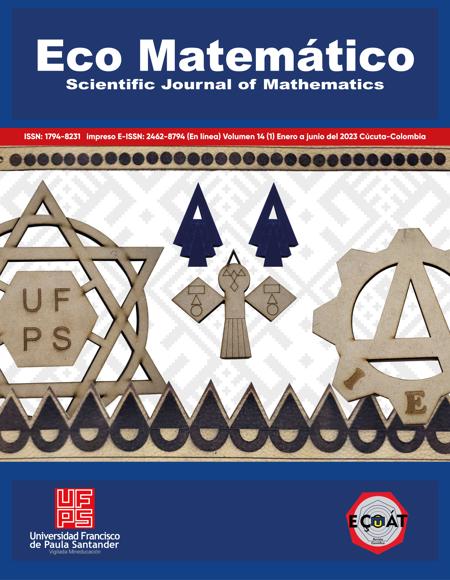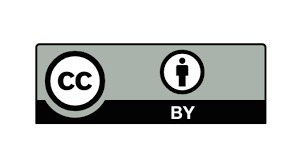Epistemology of teaching practices in mathematical problem solving: An emerging diagnostic
Epistemología de la práctica docente en la resolución de problemas matemáticos: Un diagnóstico emergente
Main Article Content
The study addresses the need to develop heuristic frameworks in mathematics education that facilitate problem solving and close the gap between theory and practice. This article, based on a qualitative ethnographic methodology, analyzes the interactions and emerging meanings in teaching practices in the Colombian context. The sample included teachers, students and graduates of engineering and management careers, intentionally selected to represent diverse perspectives. Through in-depth interviews, participant observation and document analysis, data were collected, categorized and coded inductively. The main results highlight the importance of effective instructional strategies, the incorporation of ICT, and adaptation to changes such as those imposed by the COVID-19 pandemic. In addition, teachers' beliefs and attitudes were identified as significantly influencing their pedagogical practices and students' ability to solve complex mathematical problems. The configuration of the epistemology of teaching practice is based on the description of these emerging elements and their interactions to improve the teaching and learning of mathematics in university contexts, offering a comprehensive understanding of the educational dynamics that can inform policies and practices to improve the teaching and learning of mathematics in university contexts.
Downloads
Article Details
Anthony, G., & Walshaw, M. (2017). Effective pedagogy in mathematics. Educational Practices Series, 19.
Boaler, J., & Staples, M. (2017). Creating mathematical futures through an equitable teaching approach: The case of Railside School. Teachers College Press.
Confrey, J. (2017). Research: To Inform, Deform, or Reform?. In Compendium for Research in Mathematics Education (pp. 3-26). NCTM.
Dewey, J. (2004). Experiencia y educación. Biblioteca Nueva.
Elsayed, M., & Abdo, S. (2022). The effectiveness of learning mathematics according to the STEM approach in developing the mathematical proficiency of second graders of the intermediate school. Education Research International, 5206476. https://doi.org/10.1155/2022/5206476 DOI: https://doi.org/10.1155/2022/5206476
Goetz, J. P., & Le Compte, M. D. (1999). Etnografía y diseño cualitativo en investigación educativa. Morata.
Kilpatrick, J., Swafford, J., & Findell, B. (2020). Adding it up: Helping children learn mathematics. National Academy Press.
Lester, F. K. (2017). Second handbook of research on mathematics teaching and learning: A project of the National Council of Teachers of Mathematics. Information Age Publishing.
Li, Q., & Ma, X. (2020). A meta-analysis of the effects of computer technology on school students’ mathematics learning. Educational Psychology Review, 22(3), 215-243. DOI: https://doi.org/10.1007/s10648-010-9125-8
Maldonado Carrizales, M. J. (2018). El docente como generador de su propio proceso de profesionalización. Editorial Digital UNID.
National Council of Teachers of Mathematics. (2018). Principles to actions: Ensuring mathematical success for all. National Council of Teachers of Mathematics.
Polya, G. (2018). How to solve it: A new aspect of mathematical method. Princeton University Press.
Rézio, S., Andrade, M. P., & Teodoro, M. F. (2022). Problem-Based Learning and Applied Mathematics. Mathematics, 10(2862). https://doi.org/10.3390/math10162862 DOI: https://doi.org/10.3390/math10162862
Rodríguez, A., Gil, J., & García, E. (1999). Metodología de la investigación cualitativa. Aljibe.
Sandín, M. P. (2003). Investigación cualitativa en educación: fundamentos y tradiciones. MacGraw-Hill Interamericana.
Schoenfeld, A. H. (2016). Mathematical problem solving. Academic Press.
Taylor, S. J., Taylor, S. J., Bogdan, R., Piatigorsky, J. (2000). Introducción a los métodos cualitativos de investigación: la búsqueda de significados. Paidós.
Umarji, O., Dicke, A.-L., Safavian, N., Karabenick, S. A., & Eccles, J. S. (2021). Teachers caring for students and students caring for math: The development of culturally and linguistically diverse adolescents' math motivation. Journal of School Psychology, 84, 32-48. https://doi.org/10.1016/j.jsp.2020.12.004 DOI: https://doi.org/10.1016/j.jsp.2020.12.004
Varela Ruiz, M., & Vives Varela, T. (2016). Autenticidad y calidad en la investigación educativa cualitativa: multivocalidad. Investigación en Educación Médica, 5(19), 191-198. https://doi.org/10.1016/j.riem.2016.04.006 DOI: https://doi.org/10.1016/j.riem.2016.04.006







